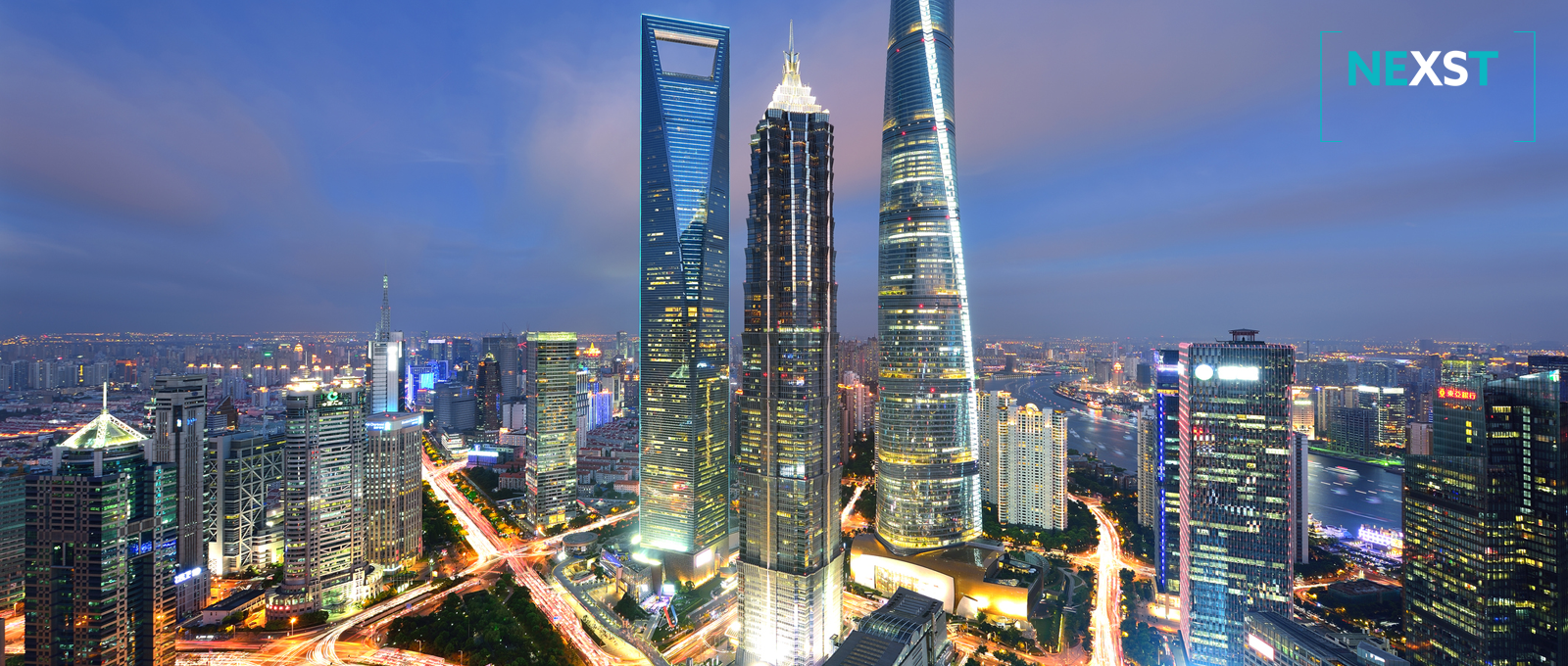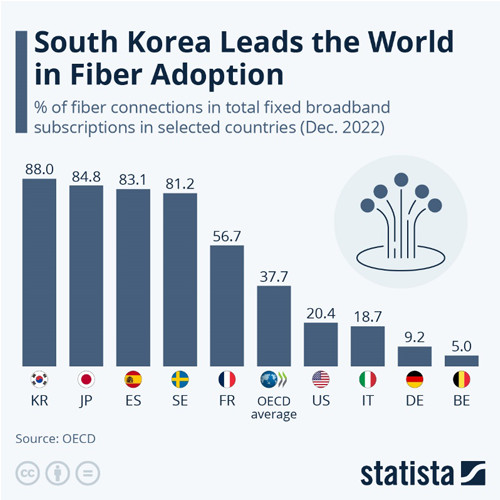Asia: leading the world in full fibre penetration
Full-fiber networks can deliver speeds of 10 Gb/s or higher, while mixed networks typically top out at around 1 Gb/s. South Korea has the highest share of full fiber connections, with almost 89% of all broadband connections being fiber-based as of June 2023. This is significantly higher than the OECD average of around 41%. South Korea is closely followed by Japan at 86%.
South Koreans are among the world’s most avid internet users. Far-reaching urbanization has also stimulated demand for fast and reliable internet services, particularly in densely populated areas such as Seoul and Busan. Singapore, Hong Kong and Taiwan also have a high percentage of households with fully fiber-based broadband connections, at 75%, 70%, and 65% respectively. In contrast, around 30% of US households have fiber-based broadband connections. In Germany and the UK, this is around 20% and in France it’s some 15%.






